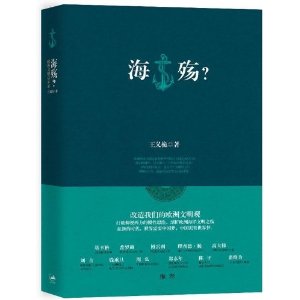Haishang? Revelations of European Civilization

Haishang? Revelations of European Civilization
Author: Wang Yiwei
Publisher: Shanghai People's Publishing House
Haishang is a record of the experience and thought of scholar-diplomat Wang Yiwei during his three-year tenure in Brussels. Starting from his perspective on globalization and the evolution of human civilization, Dr. Wang details at length the internal reasons for the decline of the great European maritime civilization and offers original insights and ideas on the Chinese people’s rejuvenation and China’s path to world leadership. In reflecting on European civilization and comparing it with Chinese civilization, Wang puts forward at least three constructive and valuable points.
According to Wang, European maritime civilization committed three “sins” in its expansions that made its ultimate wane inevitable: it was open but not inclusive; it adopted a double standard, allowing diversity within Europe but advocating a universal principle outside of Europe; and it made progress while causing damage. In addition, he elaborates on five major internal reasons that precipitated Europe’s decline, analyzing the eight patterns of the European civilization and the five paradoxes of the maritime civilization. After his exhaustive dissection of European civilization, Wang proposes that China should reconsider its stereotyped view of European civilization.
In comparing Chinese and European civilization, Haishang also discusses the potential for China and Europe to learn from each other and facilitate a harmonious co-existence. It redefines the Euro-centric vision of European maritime civilization, casting it as a “regional civilization”. “The world is getting more normal,” Wang writes. “It is starting to show how Europe originally looked, when it was a regional concept.”
The author regards both China and Europe as “the most intact, most secularized and most inclusive of the ancient civilizations up to the present.” “China-Europe relations therefore have the possibility of transcending historical stereotypes and solving global problems, and are crucial to creating a harmonious world.” He observes that the traditional Chinese ideas of “harmony” and “great community” can help Europe to overcome its undue dependence on normative power, while useful elements from European civilization can help facilitate the Chinese people’s rejuvenation. Wang’s prediction is that European civilization will regain vitality in the new century, moving toward a second Renaissance and Enlightenment. Together with European civilization, Chinese civilization will be able to create a bright future for “neo-humanism” on the basis of China’s “great revival, great reconciliation and great inclusiveness”.
Zhang Shuhua is from the Institute of Information Studies at CASS.

 PRINT
PRINT CLOSE
CLOSE